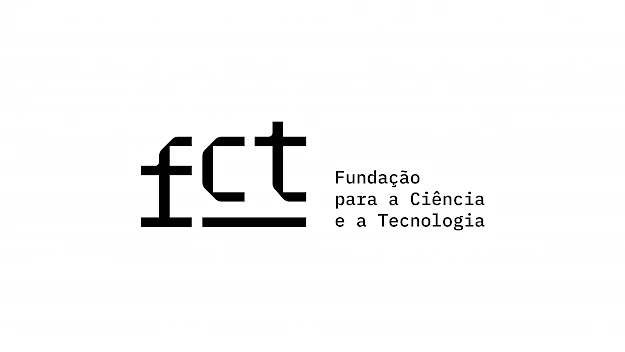VR-ACT after Stroke: a feasibility RCT of a Virtual Reality delivery of ACT for pain management
Referência | Código da Operação: 2023.13402.PEX
Acrónimo: VR-ACT
Duração
01/02/2025 - 31/07/2026
Apresentação
Objetivo temático: Goal 3 of the SDGs to ensure health and well-being, and indirectly contributing to access equitable to quality and sustainable health services.
Área Científica: psychology
Síntese do Projeto: As chronic pain (CP) of different etiologies represents a medical, social and economic burden (e.g., direct and indirect health costs amount to 2.71 % of the Portuguese annual GDP), optimized management of pain tools to support CPSP patients in adjusting to their condition and improving quality of life is timely and can lead to more cost-effective healthcare systems by promoting the management of pain outside health institutions. Although approximately 50% of stroke patients develop chronic pain, which is hypothesized to result from na interplay of biophysiological and psychosocial factors, pain management is reported to be an unmet need of CPSP patients and is almost absent in evidence-based post-stroke rehabilitation programs. Psychological interventions that focus on fostering attentional and emotional regulation skills, as well as on promoting valued-based activities through mindfulness and behavioral practices (e.g., Acceptance and Commitment Therapy - ACT), are well suited for addressing the cognitive, emotional, and behavioral factors that contribute to and result from pain-related distress and limited functioning. Virtual Reality (VR)- delivered psychological programs have several advantages as eHealth resources. On a societal level, they potentially reduce healthcare human resources (e.g., therapist time), waiting lists, and increase cost-effectiveness of treatments. On na individual level, it allows for autonomy (patients can engage with the therapeutic VR equipment at their own pace) and gamification of therapy (turning therapy exercises into engaging activities). It also increases accessibility of large clinical samples and rural and remote clinical cohorts, as well as provides an immersive and safe environment to foster useful psychological skills, thus overcoming the impact of the physical limitations on seeking face-toface (mental) healthcare. Nonetheless, studies on the feasibility and efficacy of VR-delivered psychological programs in CPSP are lacking. This exploratory project aims to develop and pilot test, in a parallel group randomized controlled trial (RCT) design, the feasibility, acceptability and preliminary efficacy of a self-management VR 8-week program for pain management and mental health in patients with CPSP, in two assessment moments (pre- to post-intervention). Participants will be adults (age 18-80) diagnosed with CPSP and attending the neurology service and/or the pain unit of Coimbra University Hospital (N = 60). It will follow a multi-method approach (qualitative and quantitative assessment) to compare two conditions: 1) The experimental condition (EC): the VR-ACT program: 8 modules of 3D immersive skills training (e.g., attentional and emotional regulation, through mindful meditation practices, and fostering of valued behavior change); 2) The control condition (CC): sham VR (8 2D nonimmersive video-animations and distraction exercises) delivered through a VR headset. Content analysis of qualitative data will be conducted through NVivo. Psychosocial quantitative data will be analyzed through Intention to Treat and Reliable Change Index analyses. Network Based Statistic will be used to assess network connectivity of the triple network (fMRI). The innovative features of the current project are 1) development of a VR-delivered pain management and mental health resource for CPSP patients;
2) using a placebo-controlled condition (i.e., Sham VR), instead of a passive control condition, RCT design to explore its feasibility and acceptability, and pilot test its efficacy; 3) including neurophysiological (i.e., functional connectivity of the triple network), as well as psychosocial self-reported, correlates of efficacy, through a multi-method approach (i.e., collecting qualitative and quantitative data); 4) testing of its preliminary costeffectiveness. Expected results: i) the implementation of VR-ACT will be feasible and acceptable by CPSP patients participating in the study; ii) compared to Sham VR, the VR-ACT program will be significantly more efficacious in reducing self-reported pain intensity and disability, and psychopathological symptoms, and in increasing quality of life and well-being (primary outcomes). It will also be more efficacious in increasing adaptive psychological processes, as well as in reducing functional connectivity of the triple network (fMRI) (secondary outcomes); iii) VR-ACT will be found cost-effective. In addition, VR-ACT may also impact on other spheres of patients lives, such as work (e.g., less absenteeism) and social (e.g., less pain-related, and mental health-related, restrictions on leisure activities), which will contribute to more social inclusion. Thus, the current project is aligned with the UN 2030 agenda for sustainable development, specifically directly aligned with the SDG goal 3 of ensuring health and well-being, and indirectly contributing to equitable access to quality and sustainable healthcare services.
Área de intervenção: Social Sciences - Psychology
Investigador Responsável na UC: Sérgio Andrade Carvalho
Unidade Orgânica UC: Faculdade de Psicologia e Ciências da Educação da Universidade de Coimbra
Instituições participantes no Projeto: Universidade de Coimbra (UC)
Instituição Financiadora/Gestora: FCT-Fundação p/a Ciência e Tecnologia
Programa de Financiamento: Financiado por fundos Nacionais_FCT - Fundação para a Ciência e Tecnologia.
Período de execução: 01/02/2025 a 31/07/2026
Custo total elegível (EUR): 49.930,10
Apoio financeiro público nacional: OE
Técnico do Projeto: Carla Cardoso
Contacto: +351 239 247 025 | ccardoso@uc.pt


